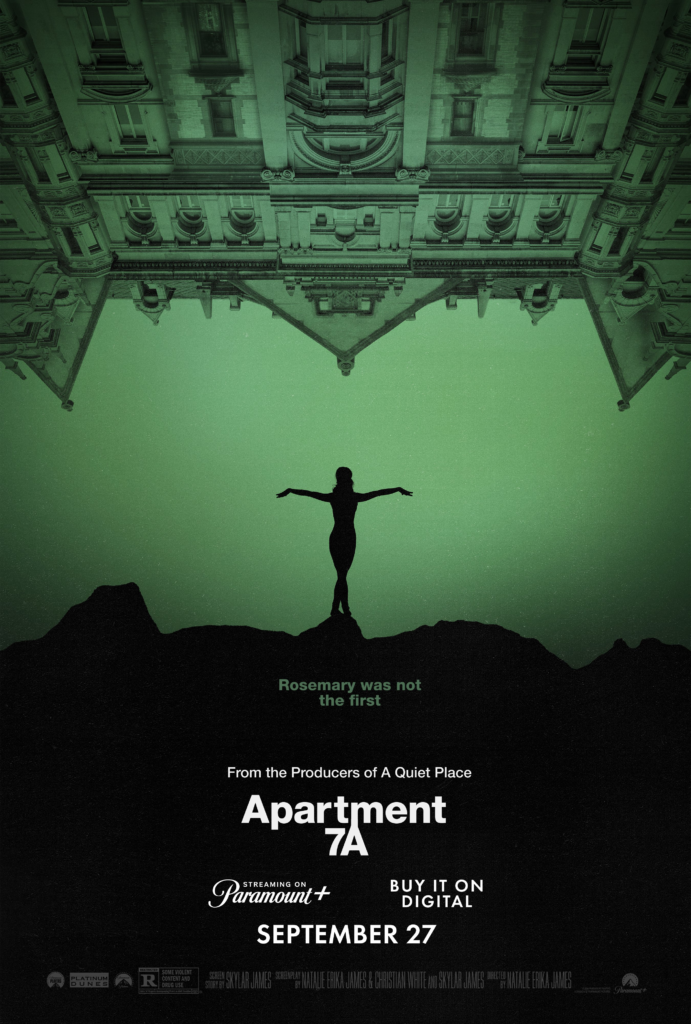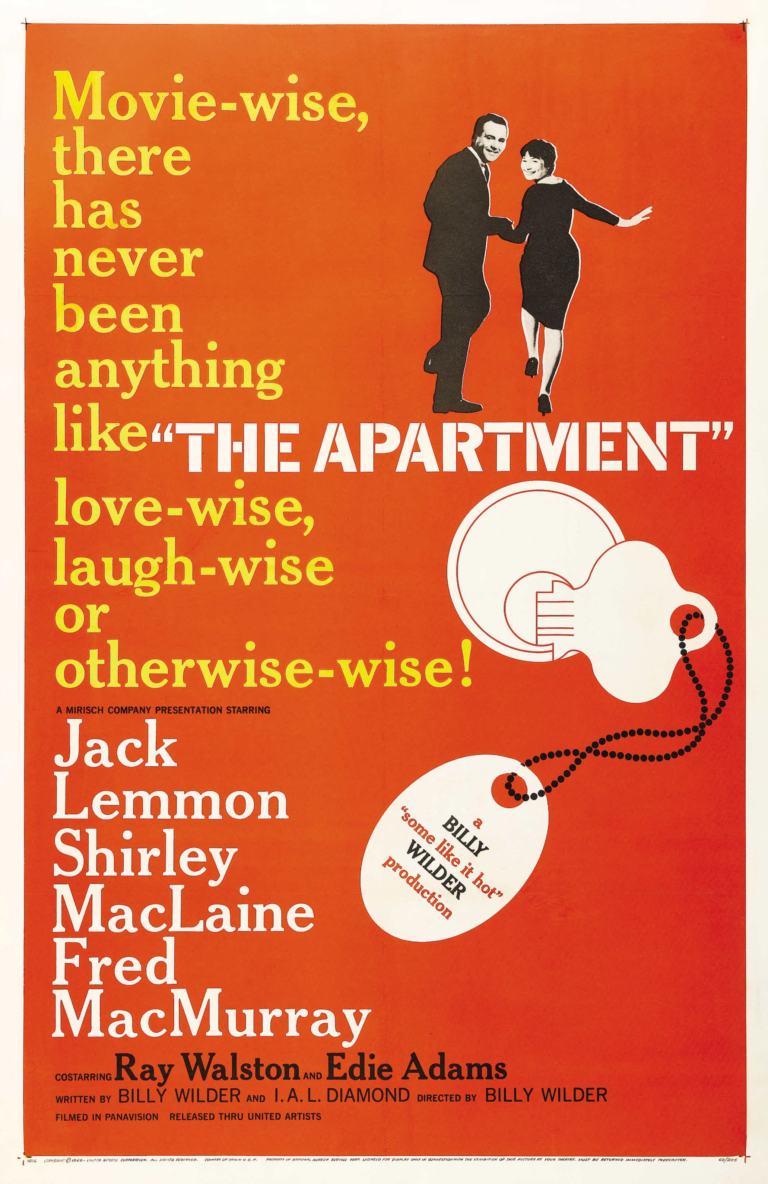Apartment 7A Christian Review

When you press play on Apartment 7A, it feels like stepping into familiar territory. Horror fans might recognize the echoes of a bygone classic, while the average viewer will sense a blend of the eerie and the unsettling. It’s not a film that reinvents the genre. Instead, it lingers in the shadows of its predecessor, Rosemary’s Baby, while trying to establish its own identity. It’s an odd experience, one that blends atmospheric dread with a slow-burn tension, all the while tethered to the towering influence of the film it loosely prequels. But does it succeed? Well, that depends on where you’re looking.
Let’s start with Julia Garner. If there’s one reason to watch Apartment 7A, it’s her. She doesn’t just carry the film; she practically saves it. Garner delivers a performance that keeps you glued to the screen, portraying a woman under siege—from supernatural forces, societal expectations, and her own growing fear. Her character is trapped, not just in the apartment, but in a web of emotional and psychological torment. It’s a story about losing control, and in Garner’s hands, it’s palpable. You feel her descent, the slow unraveling of a mind besieged by things she cannot escape.
The rest of the movie, though? That’s where things get tricky. Apartment 7A offers a plot that pulls in two directions—on one hand, it’s a horror film, steeped in a supernatural struggle; on the other, it’s an exploration of women’s autonomy, drawing parallels between the lead and Rosemary’s Baby’s iconic protagonist. These ideas could blend beautifully, but here, they just sort of bump into each other. It’s as if the film can’t decide what it wants to be. Is it a psychological thriller? A feminist critique? A supernatural scare-fest? It flirts with all three, but never fully commits.
Julia Garner: A Performance That Anchors the Storm
In a sea of clichés, Julia Garner is the rock. Her performance stands out not because the material is groundbreaking, but because she elevates it. She plays a woman being crushed by forces she doesn’t understand. As the story unfolds, it becomes clear that she’s not just fighting off some external horror; she’s struggling against a world that’s designed to control her, a world that’s closing in. And Garner sells it—every fearful glance, every whispered word, every panicked breath. It’s not the script that makes you care; it’s her.
This sense of losing control, of being manipulated by powers you can’t see or understand, is central to both Apartment 7A and the broader horror genre. It taps into something primal—the fear that we are not, in fact, in charge of our own lives. From a Christian standpoint, this is a sobering reminder of the spiritual forces at play in the world. Scripture is clear that there is an unseen battle going on around us, one that isn’t always visible but is very real (Ephesians 6:12). Watching Garner’s character grapple with unseen forces is unsettling, not just because it’s eerie, but because it touches on a deeper truth about the nature of spiritual warfare.
But while the film hints at these bigger ideas, it doesn’t fully explore them. The supernatural elements are underdeveloped, serving more as a backdrop than a driving force. This is where Apartment 7A falls short. It’s as if the film is afraid to go too far, to truly embrace the horror it flirts with. Instead, it pulls back, offering tension but never delivering the full payoff.
A Study in Control: Autonomy, Oppression, and Spiritual Realities
Beyond the supernatural, Apartment 7A is also an exploration of autonomy—specifically, women’s autonomy. The film draws clear parallels between its lead and the iconic character of Rosemary’s Baby. Both women are trapped, not just by supernatural forces, but by societal ones. In both films, the protagonists find themselves at the mercy of a system that seeks to control their bodies, their choices, their lives. It’s a commentary on the limitations placed on women, both by societal norms and, in the case of Apartment 7A, by something more sinister.
This theme of control is not new, especially in horror. But Apartment 7A handles it with a sense of restraint. It doesn’t hit you over the head with its message, but the implications are clear. The film wants to say something about the way women are stripped of their autonomy, about the way they’re controlled by forces—whether human or supernatural—that seek to diminish their power. It’s a subtle critique, but one that feels relevant in today’s cultural climate.
From a Christian perspective, the question of autonomy is a complex one. On the one hand, we are called to live in freedom—freedom from sin, freedom from fear, freedom in Christ (Galatians 5:1). Yet, we also recognize that true autonomy is found not in independence, but in submission to God’s will. The characters in Apartment 7A are trapped by forces they cannot control, but the Christian response to fear and oppression is to trust in God’s sovereignty. He is the one who ultimately holds all power and authority, even over the things we fear most.
Dianne Wiest, Horror Tropes, and an Ending That Almost Works
Of course, it wouldn’t be fair to ignore the other performances in the film, particularly Dianne Wiest’s turn as the eccentric neighbor. Wiest channels the spirit of Rosemary’s Baby’s Ruth Gordon, and while it’s entertaining, it feels a bit like a caricature. The film leans heavily on these kinds of tropes—wacky neighbors, sinister forces lurking just out of sight, a woman slowly unraveling—and while they’re well-executed, they don’t feel fresh. It’s as if Apartment 7A is afraid to break the mold, content to color within the lines of classic horror without adding anything new.
Then there’s the ending. Without spoiling too much, let’s just say it leaves you with a mixed feeling. There’s a moment—brief but powerful—that will make you gasp. It’s a jolt, a shock, the kind of moment that reminds you why horror can be so effective. But then, just as quickly, the film pulls back. The final note is less of a crescendo and more of a shrug. It’s as if the film wants to say something profound but loses its voice in the last few minutes.
That’s the paradox of Apartment 7A. It gives you just enough to keep you engaged but holds back from delivering the full punch. It’s a movie that feels like it’s constantly on the edge of something great, but it never quite gets there.
Final Thoughts: A Film Caught Between Two Worlds
Apartment 7A is a film that lives in the tension between two identities. It wants to be a prequel to a classic, but it also wants to stand on its own. It wants to be a horror film, but it also wants to make a statement about autonomy and control. And while it does both reasonably well, it never quite excels at either. The result is a movie that’s atmospheric and well-acted, but ultimately forgettable.
For Christian viewers, the film raises some interesting questions about fear, control, and the nature of spiritual warfare. It’s a reminder that the forces we cannot see are often the ones that have the most power over us, but it’s also a call to remember that our ultimate hope and security lie in Christ. At the end of the day, no matter how unsettling the forces around us may be, we serve a God who is greater than any fear we face.
Final Rating: 6/10. It’s worth watching for Julia Garner’s performance and the eerie atmosphere, but don’t expect it to stay with you long after the credits roll.







